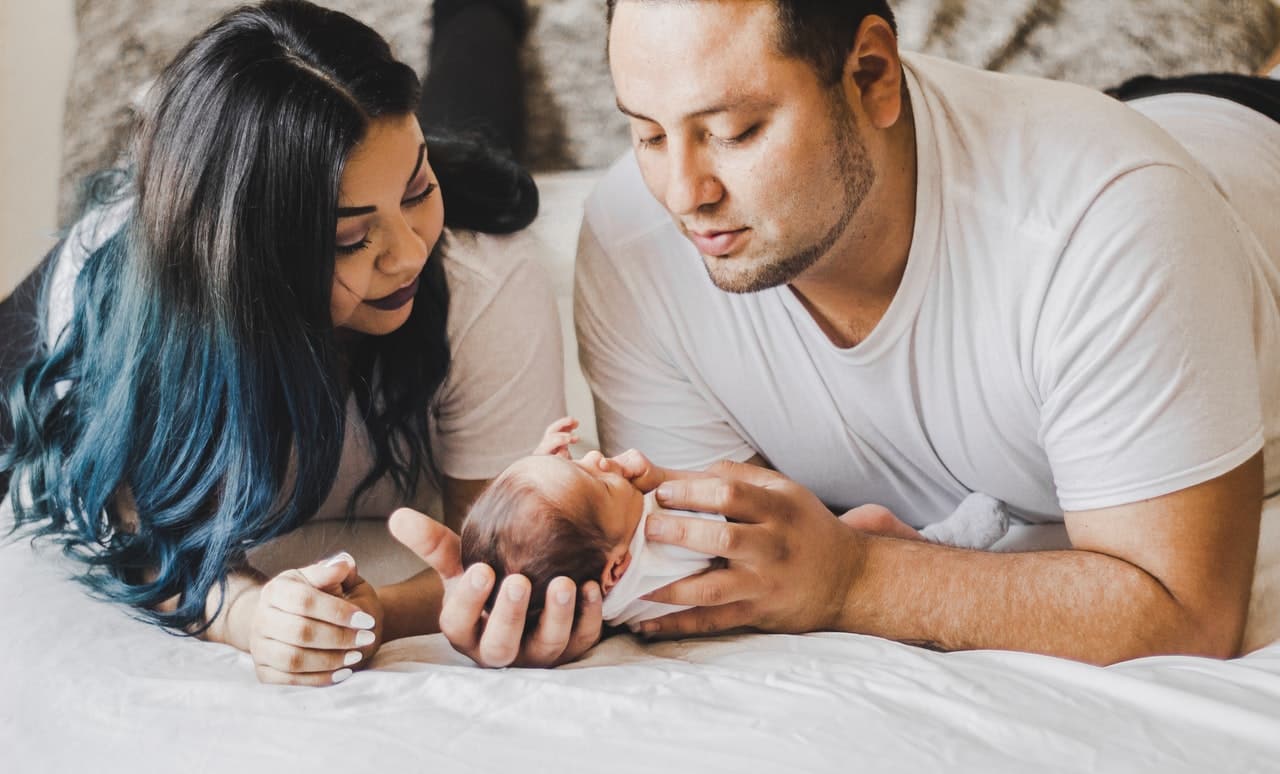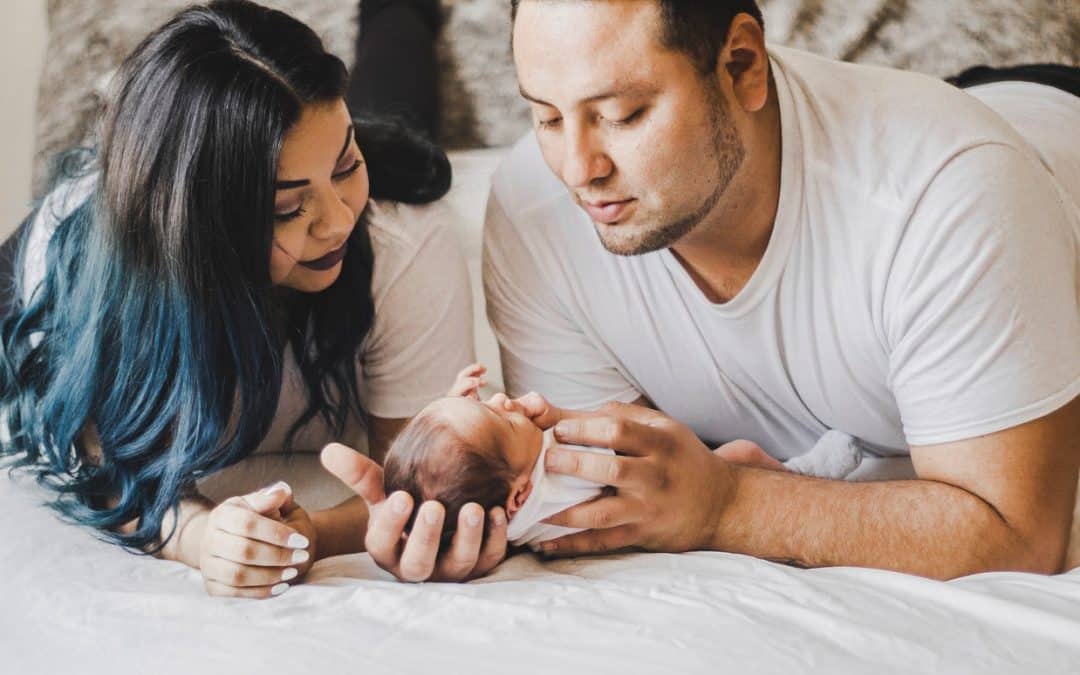Most people think they know what postpartum depression looks like—it’s just really intense baby blues, right? The truth is, postpartum distress shows up in a wide variety of ways. If you’re only expecting depression, you might miss some of the other signs that you have a treatable condition.
Signs of Postpartum Depression You May Be Missing
Postpartum depression (PPD) is the most commonly known struggle new parents face after giving birth, affecting up to 1 in 7 women. (That rate may be even higher for queer and trans childbearing parents.) PPD can show up as the “standard” symptoms—crying, depressed mood, fatigue, etc.—but it can also show up in a bunch of different ways.

For example, you could find yourself experiencing things like…
Rage
The cultural narrative about new parenthood is that it’s a joyous and serene experience. Even if you’re tired, somehow those superparent hormones are supposed to kick in and make sure you still feel good. The truth is, you may very well feel irritation, anger, and even rage.
Hopelessness
It’s really common to feel overwhelmed after giving birth. But if you’re finding that your overwhelm is slipping into hopelessness, or a sense that things will never get better, that could be a sign of postpartum depression.
Shame, guilt, and judgment
The wild thing about parenting is that you’re basically handed a whole new human and told to keep it alive with little or no training. So of course it makes sense that you’re going to have some anxieties about making mistakes. But for some parents, that can go over the top and start feeling like deep shame and guilt, or extremely critical self-judgment.
Ongoing difficulty connecting with the baby
You’ve brought this new being into the world. So now you’re supposed to be overcome with a deep love and connection as soon as you see them, right? Well, not always. It’s normal to have some variation in connecting with your baby. However, if you find you continue to have little interest in the baby, this can be a sign of postpartum depression.
Other “Flavors” of Postpartum Distress
Postpartum Anxiety
There’s a lot to worry about as a new parent, but if you find yourself obsessively worrying about things you might be experiencing postpartum anxiety. For instance, having fleeting worries about your baby not breathing is pretty common. But finding yourself staying awake for days at a time just so you can watch the baby while they sleep—not so much.

Postpartum Obsessions or Compulsions
Similarly, some parents start to experience symptoms of OCD after pregnancy, even if they haven’t had this kind of issue before. This can look like the classic compulsions of OCD. For instance, you might find yourself needing to check the baby once every thirty minutes throughout the night. Or you could be going over-the-top with cleaning just in case your baby is exposed to germs. It could also look more like intrusive thoughts. For instance, you might find yourself having disturbing thoughts about suffocating, strangling, or sexually abusing your baby—even though you don’t want to do that, and never would.
Postpartum Posttraumatic Stress
Some people experience postpartum PTSD. This can happen as a recurrence of previous PTSD—if you’ve experienced trauma or abuse before, the experience of birth can bring it back to the surface. It might also be birth-specific PTSD, especially if you experienced a difficult or traumatic birth. This can show up as flashbacks, hypervigilance, avoidance of the baby, or nightmares about the experience.
Postpartum Psychosis
Finally, in rare cases (0.1-0.2% of births), some people experience psychotic thoughts after giving birth. They may have delusions, strange beliefs, see or hear things that are not there, or feel paranoid. Delusions are usually not about harming self or others, but some people do have aggressive urges, usually toward self or the newborn baby. If psychosis happens, it usually comes on suddenly in the first couple of weeks after birth. This is a serious condition that requires immediate treatment.

When Should I Seek Therapy for Postpartum Depression or Distress?
You know yourself, your body, and your baby best, so trust your instincts. If you’re getting the feeling that things are starting to get out of control, or like your quality of life is being affected, it’s time to reach out to someone. It’s also ok to seek therapy just because you’d like to feel better than you do. You don’t have to wait until it feels like a crisis or an emergency to deserve support.
I know that this can all sound really scary. But you don’t have to go through it alone. If you or your partner is struggling with postpartum distress, therapy can help. As a psychologist, I work with new parents throughout California to support them through the postpartum period with as much grace and ease as possible. For folks in other states, you can visit the PSI Perinatal Mental Health Directory to find a provider near you.
About the Author: Dr. Shianling Weeks is a licensed psychologist who provides clinical supervision at Stella Nova Psychology. We are a mental health clinic offering individual, group, and couples therapy for women and nonbinary professionals throughout California.
In addition to her work around perinatal fertility, and the transition to parenthood, Shianling is passionate about working with AAPI and other BIPOC communities, and uses evidence-based, culturally responsive approaches to treating anxiety disorders, depression, trauma and more.
Therapy for Postpartum Depression & Postpartum Anxiety
If you’re experiencing depression or anxiety around pregnancy and childbirth, Stella Nova can help. We offer online therapy in California for a variety of perinatal mental health concerns.
To get matched with the best online therapist for your needs and preferences, schedule a free, 20-minute phone consultation today.


